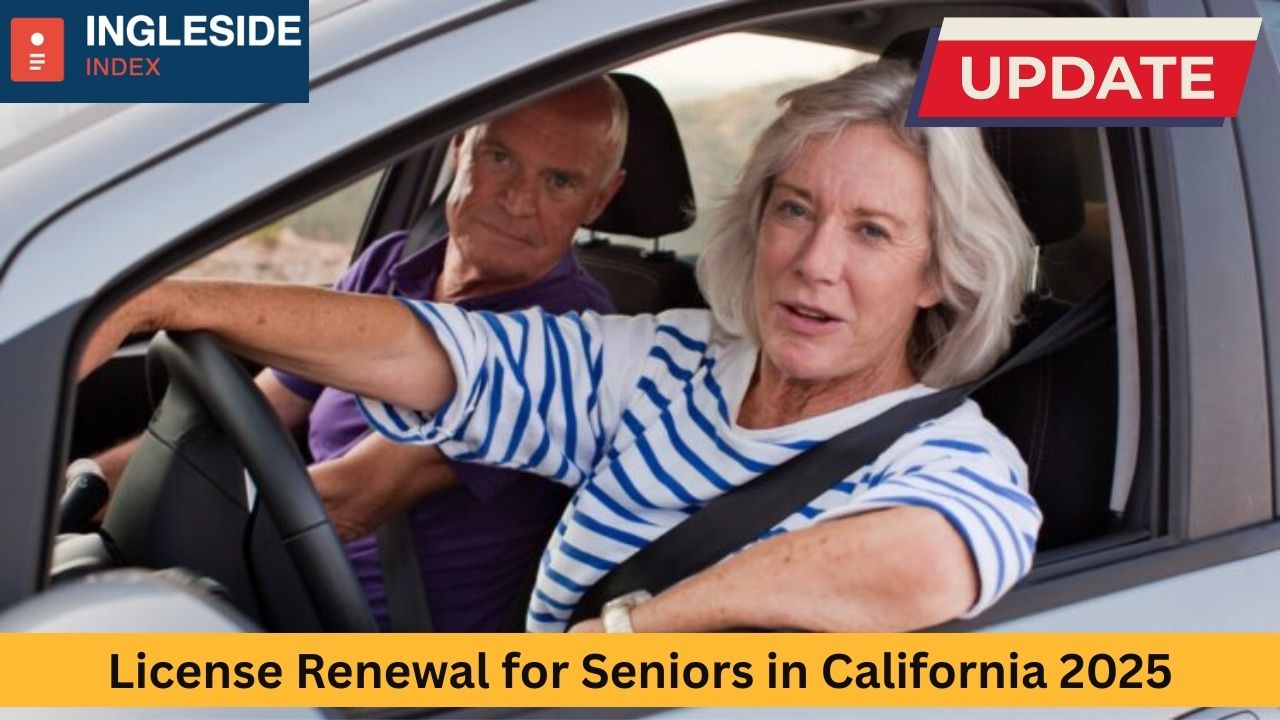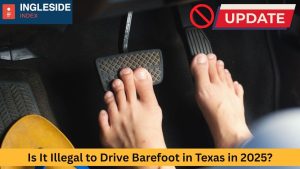For senior drivers in California, a driver’s license is more than a legal requirement—it’s a symbol of freedom and independence. Whether it’s grocery shopping, visiting friends and family, or getting to medical appointments, the ability to drive can greatly impact a senior’s quality of life. The California Department of Motor Vehicles (DMV) understands the importance of this and has structured specific renewal rules that balance road safety with individual autonomy.
With an aging population and a growing number of licensed drivers over the age of 65, California has adapted its regulations to address the evolving needs of its senior residents. These policies aim to ensure that drivers remain competent behind the wheel without placing unnecessary burdens on those who are still fully capable.
California’s Aging Driver Demographics
California is home to over 5.5 million residents aged 65 and older, and a large portion of them are active drivers. Approximately 70% of Californians in this age group maintain valid driver’s licenses. Among those 75 and older, that number is still above 60%, reflecting a strong desire for continued independence.
As more Baby Boomers enter retirement, the demand for senior-friendly licensing policies is increasing. The DMV estimates that by 2030, seniors could represent nearly 20% of all licensed drivers in the state. This trend has made senior license renewal not just a regulatory topic, but also a major aspect of California’s public safety and transportation planning.
Overview of Renewal Rules for Seniors
Renewal Frequency
In California, all driver’s licenses are valid for five years. However, once a person turns 70, they are required to complete every renewal in person at a DMV office. This ensures that vision and cognitive abilities are checked regularly as part of maintaining public safety on the roads.
In-Person Visit Requirements
For seniors 70 and older, an in-person visit is mandatory. This allows the DMV to perform key evaluations like vision testing and update photos. Mail or online renewals are not allowed for this age group under standard conditions.
Vision, Written, and Knowledge Tests
A basic vision test is required at the time of the renewal. If a driver fails this exam, they may be issued a temporary license and asked to provide a vision report from an eye care professional.
Previously, seniors were also required to pass a written knowledge test. However, recent policy updates have relaxed this requirement for seniors with clean driving records.
eLearning Alternative
Instead of taking the traditional knowledge test, eligible seniors can now opt for an online, open-book eLearning course provided by the DMV. The course is self-paced, and there’s no final exam—only the requirement to complete all modules.
How New Policies Benefit Seniors
In October 2024, California implemented a significant change: seniors aged 70 and over with clean driving records no longer need to take the written knowledge test or complete the eLearning course. This change applies only if the senior has:
-
No at-fault accidents within the last three years
-
No points or citations on their driving record
-
No suspensions or DUI offenses in recent years
These adjustments aim to reduce the burden on older drivers while keeping the focus on safety. With fewer testing requirements, it’s estimated that nearly 50,000 senior drivers each year will benefit from shorter DMV visits and fewer delays.
Exceptions and Special Circumstances
There are several situations where a senior may still be required to take additional steps during the renewal process. These include:
-
Having one or more points on your driving record
-
Having been involved in multiple at-fault collisions
-
Any recent suspension or DUI
-
Health or cognitive concerns reported by a physician or law enforcement
-
Being a new California resident transferring a license from another state
In such cases, the DMV may request a behind-the-wheel driving test, medical documentation, or a formal re-evaluation of driving abilities.
Step-by-Step Guide to License Renewal
Sixty Days Before Expiry
The DMV will typically send a renewal notice approximately 60 days before your license expires. Make sure your mailing address is updated in the DMV system to avoid delays.
Starting the Application
Once the notice is received, seniors can begin the process online by creating or logging into their MyDMV account. Here, you’ll be guided through eligibility checks, form completion, and fee payment (which is generally between $45–$50). If required, the DMV will also direct you to complete the eLearning course.
Booking Your DMV Visit
To save time, seniors should book their DMV appointment in advance. You’ll need to bring your current license, proof of residency, any required medical documents, and your eLearning course confirmation (if applicable). If you’re applying for a REAL ID upgrade, make sure to bring the necessary additional documents.
At the DMV
Once at the DMV, you’ll take a vision test using a standard eye chart or machine. If you wear glasses or contact lenses, bring them with you. After your vision is verified, a new photo will be taken.
In rare cases, if the DMV has concerns about your physical condition or driving behavior, you may be asked to complete a supplemental driving test.
After the Visit
You’ll be issued a temporary paper license that is valid for 60 days. The permanent card will be mailed to you, usually arriving within 3–4 weeks. You can track the status of your renewal online through the MyDMV portal.
Tips From Major California Cities
Los Angeles
Los Angeles County is home to more than 1.2 million licensed drivers over the age of 65. The DMV offices in North Hollywood and Lincoln Park tend to have shorter lines during mid-mornings, especially on Tuesdays and Wednesdays. Some seniors in LA also take advantage of DMV kiosks in supermarkets for limited services.
San Diego
San Diego’s Kearny Mesa and Chula Vista locations are popular among seniors. The Kearny Mesa DMV has dedicated eLearning support kiosks for those who choose to take the course at the office. Mobile eye clinics often partner with local senior centers here, helping drivers prepare for their vision test.
San Francisco
In dense urban centers like San Francisco, many seniors rely more on public transportation, but over 250,000 senior drivers still use their personal vehicles. The DMV location at the Embarcadero is highly rated for appointment efficiency. Seniors in the Richmond and Sunset districts often prefer late-morning slots to avoid peak traffic.
Fresno and Sacramento
Fresno and Sacramento have large senior populations with high vehicle dependence due to less reliable public transit. Both cities offer seasonal pop-up DMV events at senior centers where mobile DMV teams perform renewals and vision checks onsite.
Safety and Health Considerations
Why Vision and Reflex Testing is Critical
As we age, changes in vision, hearing, and motor skills can affect our driving ability. The DMV’s vision test is a critical component in identifying whether additional corrective measures are needed to maintain road safety.
Seniors who wear bifocals or progressive lenses should practice using them while driving, as transitioning from near to far vision can be slower.
Common Challenges Seniors Face
-
Slower reflexes that affect reaction time
-
Difficulty judging distances or speeds
-
Stiffness or pain that limits head and neck movement
-
Increased sensitivity to glare, particularly at night
These conditions don’t always mean a person should stop driving, but they may warrant more caution, modifications, or restricted licenses (such as daylight-only driving privileges).
When to Make Lifestyle Changes
Seniors should consider limiting driving at night or during bad weather. Avoiding rush hour in cities like Los Angeles and San Diego can also reduce stress and improve safety.
Basic physical exercises that enhance flexibility and leg strength can support safe driving habits. Practicing gentle stretches and mental alertness drills are also helpful.
Maintaining Independence Without Driving
For those who decide to give up driving, there are still many ways to stay active and mobile in California:
-
Local senior transportation programs offer shuttle services to medical appointments, grocery stores, and community centers.
-
Paratransit services like Access (in LA) and MTS Access (in San Diego) provide door-to-door rides for eligible seniors.
-
Rideshare companies like Uber and Lyft offer senior discounts and even phone-in services for non-app users.
-
Communities like those in Palm Desert, Irvine, and Santa Rosa often have neighborhood van pools and volunteer ride programs.
Maintaining social engagement and access to essential services is key to overall well-being, whether or not you choose to continue driving.
Conclusion: Planning Ahead for a Smooth Renewal
Renewing a driver’s license as a senior in California is more manageable than ever thanks to recent policy updates, improved online resources, and city-level support programs. Seniors with clean records now benefit from waived testing requirements, streamlined appointments, and practical alternatives like the eLearning course.
Preparation is the key. Know your eligibility, plan your DMV visit early, and stay proactive about your health and driving capabilities. With the right steps, California seniors can remain safe, independent, and confident drivers for years to come.




